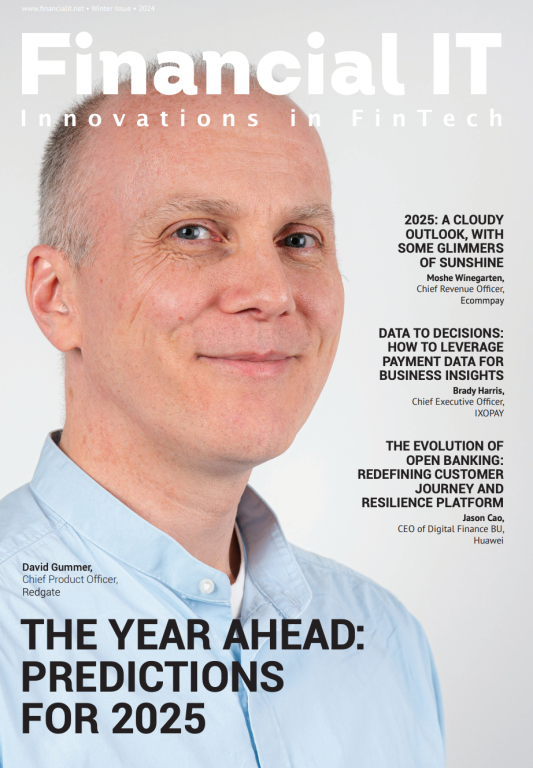Published
- 02:00 am

The report found that by 2025, instant payments and e-money payments will account for more than 25% of global non-cash transactions, up from 14.5% in 2020.
Payments are entering a new experience-driven era (Payments 4.X[1]), ushered in by an accelerated transformation timeline due to COVID-19 and the growing digital appetite of customers, according to the World Payments Report 2021 published today by Capgemini. With the Asia Pacific region leading the global pack, the demand for digital payment options is greater than ever before, along with the expectations for fast transaction settlements, instant payments, e-money, failsafe security, and wow-factor customer experience.
The report found that nearly 45% of consumers frequently use mobile wallets to make payments (>20 transactions a year) up from 23% in the 2020 poll. Furthering this trend, global B2B non-cash transactions will increase to reach nearly 200 billion transactions by 2025, from 121.5 billion in 2020, according to Capgemini estimates.
“As digital payments and mobile wallets become more the norm than the exception, payment providers must find ways to meet consumer hopes for speed and ease of use,” said Anirban Bose, CEO of Capgemini’s Financial Services and Group Executive Board Member. “To embrace the next generation of payments, banks must build a complimentary partnership ecosystem to keep up with the rate of change.”
As spending rebounds, next-gen payments will drive non-cash transaction growth
The report found that with spending expected to rebound in 2021, non-cash transactions will rise, with instant payments, e-money, and next-gen payment methods − Buy Now Pay Later (BNPL), invisible, biometric, and cryptocurrency − driving the non-cash transaction growth. After eight years of double-digit growth, overall global non-cash transaction growth decelerated to 7.8% in 2020 down from 16.5% in 2019, fueled by hesitation around uncertain market conditions due to the pandemic. However, global non-cash transactions are poised to grow at 18.6% CAGR (2020-2025Forecast), driven by next-gen payments, and are projected to reach 1.8 trillion in volume by the end of the forecast period.
Globally, APAC is leading the digital payment revolution. By 2025, the region will represent more than half of global non-cash transactions with 28% CAGR from 2020-25. More than half a billion Europeans say they will shop online in 2021, (25.5% of which is cross-border).[2] In Europe, mobile payments and cross-border e-commerce will ramp up and drive the region beyond 400 billion transactions in 2025 at a CAGR of 13% (2020-25Forecast). North America is predicted to stabilize non-cash payments volumes due to plateaued card transaction growth and slow mobile payments adoption.
With customer expectations increasing, legacy payments infrastructure is being stretched
As digital adoption continues to accelerate, increased volumes and instant processing requirements are stretching legacy payments infrastructure. About 55% of the surveyed executives said their technology investment priorities were payments infrastructure modernization (real-time payment system implementation, API integration, ISO 20022 migration, cloud transformation). Providers need to prioritize digital capabilities to remain competitive. COVID-19 drove both retail and B2B payments to digitalization. The wide gap in terms of customer satisfaction along with growing digital appetite of retail and B2B customers continues to evolve and redefine customer engagement in the payments industry. The report found that attractive loyalty and rewards, frictionless transaction experience, alternate payment options, and sustainable payment products are the key areas in which gaps exist between customer expectations and payment executive priorities.
Regulators strive for balance between innovation and safety
Payments service providers have been the beneficiaries of a new balanced approach to key regulatory and industry initiatives (KRIIs) to promote and facilitate a payments-friendly environment. For the first time since tracking KRIIs, regulators supported balanced action across all primary objectives (risk reduction, standardization, competition and transparency, innovation) to maintain equilibrium within the payments landscape.
KRIIs are on a cyclical journey across efficiency, customer focus, innovation and collaboration. By ensuring a level playing field through anti-monopoly measures and transparent data sharing, policymakers signal a future that’s friendly to open finance. According to the report, payment providers should focus on benefitting from this approach to regulation as they continue to innovate to meet consumer demand.
Payment firms need to future-proof with Payments 4.X
With spend predicted to increase and non-traditional payment methods poised for growth, future-proofing firms will embrace the elements of Payments 4.X, including data, shared infrastructure, platform capabilities and embedded finance to deliver superior customer experience. In regard to profitability plans, most payment firm respondents opted for operating model measures such as investing in third parties to develop innovative propositions (52%), orchestrating an API-based ecosystem, and moving into a platform-based business model (45%). The most successful payment firms will collaborate with PayTech and ecosystem partners to craft solutions based on customer experience rather than products. API maturity, data prowess, and augmented processing capabilities, coupled with cloud-based agility will be the catalysts to Payments 4.X to move beyond the traditional transaction mindset into new monetization approaches.
Report Methodology
The World Payments Report 2021 offers insights across 44 payments markets within various geographical regions. For worldwide macro descriptive graphs, we defined five regions: Europe, North America, Asia-Pacific, Latin America, and MEA, grouped by geographic, economic, and non-cash payment market maturity criteria. The report draws on research insights from a voice of customer survey which queried 6,300 customers worldwide and interviews and surveys of more than 210 payments executives.
Related News

Michael Moran
Senior Currency Strategist at ACY
Summary: Welcome to Payrolls Friday! As my fingers hit the keyboards while my brain contemplates Friday, Payrolls Day. see more
- 06:00 am

The IRS can avoid the risk of misuse and loss of private data by using analytics software.
"The IRS doesn't need to know when you move money between your bank accounts or pay down your credit card," says banking industry expert Dave McNab, CEO of FlowTracker Analytics. "But they do want to know when taxpayer returns don't line up with banking activity. There's a less intrusive way of solving this, and we have the technology to do it right now."
Reporting every banking transaction over $600 (including personal identity information) to the IRS would create a gold mine of private data in the Treasury Department, with the risk of abuse or loss to hackers posing serious privacy risks to everyone in the U.S. Experts from across the Financial Industry have expressed concerns to Congress, including the American Bankers Association and the Credit Union National Association. The current proposal would generate millions of false non-compliance signals to be reviewed, at enormous cost to taxpayers and the industry, according to McNab and his team.
McNab explains, "FlowTracker reports the flow of money at the customer level, not transactions. It's just like cash flow statements in annual reports. FlowTracker provides more privacy, less risk, and fewer false signals at much less cost. We turn snapshots of account balances into a movie of money in motion," says McNab, "and that's what the IRS really needs."
McNab and his team have reached out to interested Financial Services Industry organizations, Members of Congress, and the Press to raise awareness of both the risks and challenges of Treasury's proposed banking transaction reporting requirements, and to ensure the benefits of reporting money flows instead are fully considered.
Mr. McNab is available for interviews on request.
Related News
- 07:00 am

TiPJAR®, the UK’s leading HMRC-cleared cashless tipping platform have announced their second pioneering partnership with TableYeti™, provider of payment devices that deliver a radically better contactless payment experience for hospitality businesses, to launch the world’s first payment terminal that enables card tips to be separated from a transaction transparently.
Their new ground-breaking tipping solution will be the first of its kind, able to split credit and debit card tips from a transaction so that they go into a separate pot that operators don’t have access to, ensuring that 100% of every tip goes directly to staff. This unique system will remove the burden of complying with new legislation surrounding tip management following the government’s recent announcement that businesses will face hefty fines or prosecution if 100% of tips don’t go to their staff.
TiPJAR®, founded by James Brown of BrewDog, backed by Alex Moore of Rosa’s, Gary Dolman of Monzo and Simon Bocca formerly of Fourth are on a global mission to bring transparent, fair, and staff-controlled digital tipping to the hospitality industry, and is set for world domination after exceptional growth over the last 6 months, having just completed their recent crowdfund, raising over £1.3M.
TableYeti is a hospitality-focused payment provider, dedicated to creating payment devices that make paying faster, collect more data, drive more tips and most importantly, ensure a radically better experience for guests. It is a unique system which enables feedback, seamless bill splitting for groups, and now, transparent and fair card tipping.
Oliver Pugh, founder and CTO of TableYeti stated: “Our Yeti pay at table device already increases tips by between 10-20% per shift, and now the fact that we can ensure these tips go directly to the workers via the TiPJAR platform and have these tips shown to the staff in real time with incredible levels of transparency is a game changer.”
Ben Thomas, CEO of TiPJAR also commented: “TiPJAR exists to help tipped workers as cash disappears, and we’re delighted to announce yet another innovation that ensures easier, more traditional tip collection and still stands on our moral pillars of fairness and transparency. Our system was designed to ensure 100% of tips go directly to staff, and not through the business. The impending legislation proves that the world is finally seeing the desperate need for transparency surrounding tips, and we’re excited to be pioneering this cause.”
Today, Tableyeti are also announcing that they’ll be offering payment devices that function as more traditional payment terminals, both integrated and standalone. These will also enable tipping of gratuity directly into TiPJAR, significantly expanding the reach of this functionality across the service industry.
Related News
- 07:00 am

Coinfloor customers will be smoothly migrated to CoinCorner’s platform
Two of the leading UK-focused Bitcoin exchanges, CoinCorner and Coinfloor, have agreed to migrate Coinfloor’s customers to the CoinCorner platform to help further British Bitcoin adoption.
Coinfloor, the UK’s oldest continuously-trading exchange, will migrate its customers over to CoinCorner, also one of the longest-running British Bitcoin exchanges, enabling customers to continue on their Bitcoin journey while also having access to a broad range of new features, with many more on the way. The teams will be working together to ensure a smooth transition for customers. CoinCorner customers will not be affected.
Founded in 2014, CoinCorner offers a variety of cryptocurrency services including buying and selling Bitcoin, a Bitcoin payment solution and the first Bitcoin cashback service available for the UK.
CoinCorner CEO, Danny Scott, said, “We're very excited to welcome Coinfloor customers to CoinCorner - our visions for Bitcoin have always been strongly aligned, so it makes sense we continue supporting Coinfloor customers on their Bitcoin journey.
Customers will now have access to our wide range of offerings, including Lightning payments, Bitcoin cashback, and many more features coming soon, such as debit cards and Bitcoin backed loans.”
Founded in 2013, Coinfloor is the UK’s longest-running crypto exchange whose mission has always been to make buying Bitcoin easy.
Coinfloor CEO, Obi Nwosu, said, “CoinCorner and Coinfloor have always stood for the same principles: the growth and support of the Bitcoin technology philosophy and community; focus on helping customers as our highest priority; and providing safe and simple ways to buy Bitcoin. Above all, we are both focused on making Bitcoin simple, secure and reliable for our users.
“Coinfloor is proud of setting new standards in the industry, including our commitment to education for our customers and making the entire process safe yet intuitive. Now it’s time to take these principles further with CoinCorner.”
Nwosu will take on an advisory role at CoinCorner during the transition period.
Related News
- 09:00 am

Open Banking Expo, the largest global community of Open Banking and Open Finance executives driving one of the biggest digital transformations across the financial services sector, has partnered with open banking advisory company Open Vector to support the growth of the open banking ecosystem in Latin America.
The partners will launch community meet-ups to bring together financial institutions, regulators and industry leaders to accelerate the proliferation of open banking in the region.
Latin America boasts a thriving fintech sector that has been looking at the UK’s experience as a model for how to advance open banking, drive innovation and support financial inclusion across a number of countries such as Brazil and Mexico.
But not all Latin American countries are moving at the same pace on Open Banking adoption, with some preferring a market-driven approach to one driven by regulation.
Carlos Figueredo, founder and CEO of Open Vector, said: “The LatAm region is continuing to show incredible potential and expansion in the use of open banking and open finance. But a key element that is required for this movement to succeed, is to provide education, discussion and communication by and to everyone in the region through a credible channel. So, for Open Vector to have this partnership with Open Banking Expo to expand to LatAm is perfect and timely as they will bring to the region the structured and well-executed conferences, webinars and news they are well known for today throughout Europe. Coupled with our well-known work and knowledge of the region, it will make this partnership and delivery relevant and credible.”
Adam Cox, co-founder of Open Banking Expo, said: “Latin America is firmly on the open banking and open finance road map. We have always supported its community and believe bringing everyone’s knowledge and experience together is key for the growth of this industry. The region already has a thriving fintech ecosystem and we’re excited to play our part in providing an impartial media and intelligence platform that will further promote collaboration and harness innovation. Working with Carlos and the Open Vector team will ensure we capture the topics and themes that matter most to the industry and we feel the partnership couldn’t come at a better time.”
Open Vector advises governments, financial institutions and fintechs on how to implement and integrate safe and secure open banking and open finance products and solutions, while ensuring customers are protected. Carlos Figueredo was Head of Data Standards for the UK Open Banking Implementation Entity (OBIE) and oversaw the development of its ISO 20022-based standards.
Related News
- 09:00 am

Digitisation of S$50-million bond allocation uses blockchain and smart contract technology to achieve faster processing and lower cost in the custody and administration of the bond
UOB and digital securities exchange ADDX have concluded the digitisation and digital custody of the inaugural sustainability-linked bond recently launched by Sembcorp Industries (Sembcorp). This initiative comes amid a rise in the use of digital securities to enhance the efficiency of bonds and other fixed income instruments.
UOB was appointed as a joint lead manager for the S$675-million sustainability-linked bond issued by Sembcorp, through its wholly-owned subsidiary Sembcorp Financial Services (SFS). The bank also partnered with ADDX to custodise and manage a S$50-million portion of the bond.
Digital bonds make use of technologies such as blockchain and smart contracts to eliminate manual processes in the bond’s custody and post-trade administration. A digital bond can be managed more efficiently as corporate actions such as coupon payments can be carried out with self-executing instructions on a single, distributed ledger. Digital bonds are also more efficient, less error prone and less costly for the issuer, investors and the banks underwriting the deal compared with traditional bonds.
Sembcorp’s ten-and-a-half-year sustainability-linked bond is due in 2032 and has been priced at a coupon rate of 2.66 per cent per annum[1]. Sustainability-linked bonds involve issuers pledging to improve their performance against tailor-made ESG (environmental, social and governance) targets. Through this sustainability-linked bond, Sembcorp has committed to a Sustainability Performance Target (SPT) of reducing its greenhouse gas emissions intensity to 0.40 tonnes of carbon dioxide equivalent per megawatt hour (tCO2e/MWh) or lower by 31 December 2025. If the SPT is not met, the coupon rate will step up by 0.25 percentage points per annum from the first interest payment date on or after 1 April 2026. The bond payment obligations of SFS will be unconditionally and irrevocably guaranteed by Sembcorp.
Mr Frederick Chin, Head of Group Wholesale Banking and Markets, UOB, said: “At UOB, we believe in being at the forefront of providing progressive financial solutions that meet the needs of companies. This means anticipating market trends and having the foresight to strike new collaborations with like-minded parties, such as ADDX.
“The collaboration with ADDX helps our corporate clients such as Sembcorp tap the benefits of digital bond issuance for security, time and cost efficiencies. Such initiatives enable our corporate clients in Singapore and across the region to engage a wider base of investors and enjoy the benefits of asset tokenisation. The use of distributed ledger technology (DLT) and asset tokenisation has strong potential in radically improving how capital markets can operate in the future and it is important our clients can take advantage of such new technologies.”
Ms Oi Yee Choo, Chief Commercial Officer of ADDX, said: “In the past year, digital securities have achieved a high level of acceptance among blue-chip issuers of bonds and other securities globally. The collaborative work by UOB and ADDX was pioneering in nature because it involved a sustainability-linked bond. Digital securities are in fact well-suited for this use case, because smart contract technology is designed to enable automated actions throughout the life cycle of a bond, including adjustments to the coupon rate, if needed. As digital bonds enter a phase of widespread adoption, the cost of fundraising through bonds and other fixed income instruments will continue to fall, and companies that embrace the new technology will be able to raise capital more efficiently.”
Related News

Michael Moran
Senior Currency Strategist at ACY
: New Zealand’s Kiwi Dollar trimmed losses after tumbling to a weekly low at 0.6876 from its 0.6960 opening yesterday. see more
- 07:00 am

- Banks make their money using “hidden” charges, say many of those surveyed
- Concern over the safety of savings is widespread, with many now limiting what they put into traditional banks
- Some - particularly young people - are so concerned they prefer to keep cash at home
- People feel banks do not put customers first, and many are now seeking alternative ways to save and spend
UK high-street banks are widely distrusted and prioritise profit, not customers, according to a new consumer survey commissioned by non-fiat banking platform Tally.
Four in ten (42%) of those polled believe traditional banks make their money through “hidden charges”, while 51% say the big banks do not put customers first.
Distrust of mainstream banking is widespread but more prevalent in the younger generations who are open to alternative financial services and products.
Of the 2,001 UK adults surveyed by Opinium, almost a third (28%) say they do not trust high street banks. This rises to 38% of 25-34-year-olds.
Financial volatility during the last 12 months, which has seen inflation rising and the Government pumping billions of newly-created pounds into the economy to try and stabilise the UK, makes many think their money is not safe in the current system - 33% fear for their money. This rises to almost half (48%) of 18-24-year-olds.
Some are so worried they prefer to keep their physical cash at home instead of trusting a bank. Overall, 16% keep their cash at home, rising to almost a third (30%) for the 25-34-year-old age bracket. In addition, nearly a quarter (22%) limit the savings they keep in banks because they do not trust the banking system
Many of those questioned are open to using alternative forms of money and currencies (38%) if the safety of their money is guaranteed. More than half of 18-24 year-olds (53%) would use an alternative currency to protect and spend their savings.
Cryptocurrencies such as Bitcoin were not seen as reliable, with only 14% saying they were safe to be used as money. However, an alternative currency backed by a physical asset - such as gold - was seen as a safe alternative, with 56% opting for this as their favoured alternative.
Cameron Parry, Founder and CEO of Tally, said:
“There’s a disturbing lack of transparency when it comes to the incumbent banking system and it’s understandable why most people have little idea of how they are being used by banks to make money.
“People should be able to rely on the money in their bank account to maintain its value over time and stay in their control at all times.
“The coming consequences of rampant money printing and near-zero interest paid on savings, together with the uncertain economic outlook, means it's crucial to protect your earnings from being undermined by inflation. And this is where fiat currency banking fails.
“Whilst the data tells us that people are not only misled or misunderstanding the fiat currency fractional-reserve banking system, it is encouraging that they are looking for mainstream alternatives, and Tally is proud to be a leader in that changing landscape.”
Tally is a revolutionary banking platform designed to protect customers, not banks. The platform uses physical gold as digital currency and has been developed in response to economic uncertainty, inflation, and a climate where banks are paying almost nil interest in traditional savings accounts.
As the pound and other government-issued currencies (also called fiat currencies) lose value, Tally maintains its purchasing power over time, thereby increasing in value relative to pounds. One Tally currently equals just over 4 pence at the current gold price.
Tally works just like a regular bank account, so you can transfer money into your account, use the app to make transfers out, or use the Tally Debit Mastercard to pay merchants and use ATMs to withdraw cash or change your PIN number.
But because a Tally account is not denominated in government-issued (fiat) currency, such as pounds, it’s a much safer form of banking, according to the team behind the platform.
38% of 25-34 year olds don’t trust high street banks
54% of 55-64 year olds believe that banks make money from ‘hidden’ charges
Over half of 18-34 year olds would use alternative currencies to protect & spend their savings
Related News
- 07:00 am

- The fintech kicks off the crowd portion of the round with £1 million raised in under 10 minutes
- The Growth Round follows on from Chip’s biggest year to date
- The funding will be used to fuel growth as the company aims to build the best savings account in the world
Chip, the digital savings account, launches the crowd component of its Growth Round, as it eyes aggressive growth and international expansion. The Crowdcube campaign initially launched privately to select shareholders, reaching £1 million in under ten minutes, and is now open to the crowd.
The company, on a mission to build the best savings account in the world, is raising its biggest ever investment round from institutions and the crowd. The new round of funding will enable Chip to pursue its ambition of becoming a fintech unicorn and, in a more immediate future, fuel growth across product, technology and marketing.
Chip is one of Europe's most successfully crowdfunded companies and has one of the largest shareholder communities in the UK’s fintech, with over 17,000 investors. As the round opens to the crowd, the fintech expects to welcome even more new shareholders to its community.
Simon Rabin, CEO and Founder of Chip, commented: “I believe there's nothing stopping us from becoming Europe's next fintech unicorn. We're saving more people more money, we're bringing them all the best savings rates with FSCS-eligible accounts, we’re offering seamless access to investment funds powered by BlackRock, and as a consequence of this amazing product, we're seeing our revenues skyrocket.”
“But this is only the start”, Simon continued. “The next 12 months will bring more market-leading savings and investment products. Our next focus is going to be growing our user base. We’re starting from a strong foundation; we’ve already grown our user base 60% YoY to more than 400,000 people, with over £600 million saved to date. Now, we want to take things up a gear, with aggressive growth plans across several marketing channels.”
“This is exactly what this round will help us achieve, and I’m thrilled to give more people an opportunity to join our shareholder community and build the best savings account in the world together.”
Matt Cooper, Chief Commercial Officer at Crowdcube, added: “We have always been very aligned with Chip’s approach to community building and involving their users as shareholders. They have been progressive and forward-thinking when it comes to equity ownership. They have consistently delivered some of the most oversubscribed crowdfunding rounds ever. This round looks set to be no different!”









